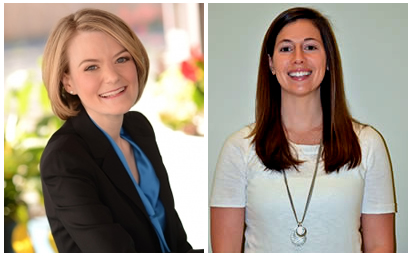
A new program is connecting UNC Charlotte experts with school counselors in Charlotte-Mecklenburg Schools (CMS) to provide professional development in designing curriculum for critical classroom lessons.
School counselors teach about topics such as bullying prevention, coping skills and conflict resolution. While the American School Counselor Association recommends that school counselors spend up to 45 percent of their time planning and teaching classroom guidance lessons, they typically don't receive training on how to plan effective lessons, according to Hilary Dack, associate professor in the Department of Middle, Secondary and K-12 Education in the Cato College of Education.
“The classroom lessons that school counselors lead are just as important as the content-focused lessons that teachers in their schools teach,” said Dack. “An argument could be made that they're even more important, since they focus on critical mental health topics, socio-emotional issues and strategies students must have to make academic success possible. Our goal with the School Counseling Fellows Program (SCFP) is to equip school counselors with the same tools classroom teachers have to make these crucial lessons as engaging, rigorous and impactful as possible.”
Dack collaborated with counseling professor Clare Merlin-Knoblich on the publication, “Improving Classroom Guidance Curriculum with Understanding by Design.”
Positive response to the publication from the academic community resulted in their creating the School Counseling Fellows Program in 2019. With the support of a UNC Charlotte Faculty Research Grant, the program will provide professional development in curriculum design for CMS school counselors, and in its first year, it has received more than 50 applications and accepted 25 counselors from surrounding schools.
“When we advertised this opportunity, we shared with potential fellows that participating in the program would be time-consuming and thought-provoking,” said Merlin-Knoblich. “Receiving so many applications was a clear reminder that our local school counselors are eager to learn and hungry for further training on how to support their students.”
The fellows met four times in fall 2019 to learn best practices in curriculum design and to redesign their own curricular unit in hands-on, practical workshops.
Noelle Hughes ’10, ’13 M.A., participated as a fellow. She noted, “The program introduced me to new ways to write counseling lesson plans and think about the intentions of my work with students. It’s so important to look at the big picture and what you want your students to walk away with at the end of your lessons.”
Fellows will take their lessons learned to their schools and teach a series of redesigned courses throughout the spring semester before gathering for a final meeting to reflect on applying their new skills in future practice.
“We hope that the program draws attention to the wide range of roles that school counselors play, the eagerness school counselors have to learn, and the importance of curriculum design to improving outcomes for K-12 students through classroom lessons on critical issues,” said Merlin-Knoblich.
Photo: Cato College's Hilary Dack and Clare Merlin-Knoblich.